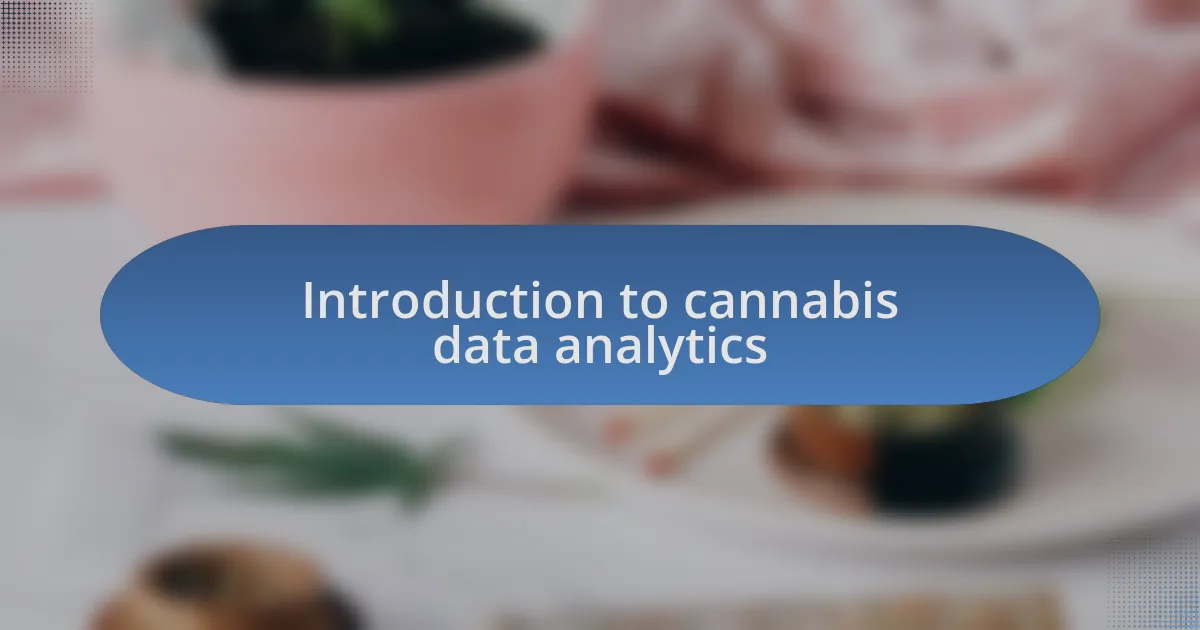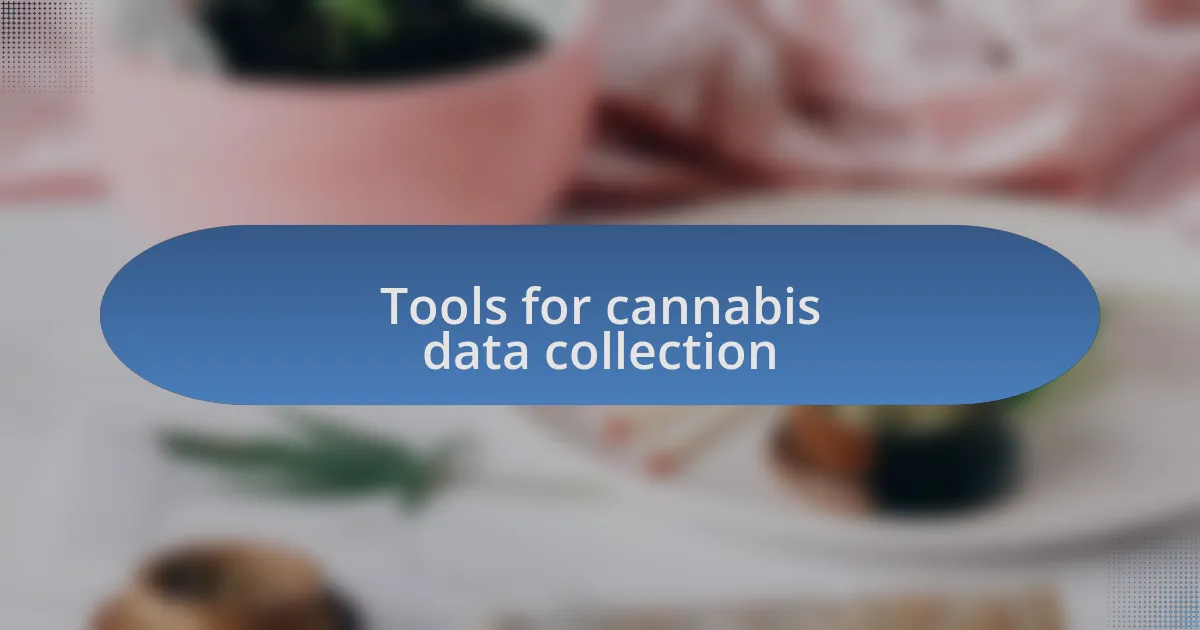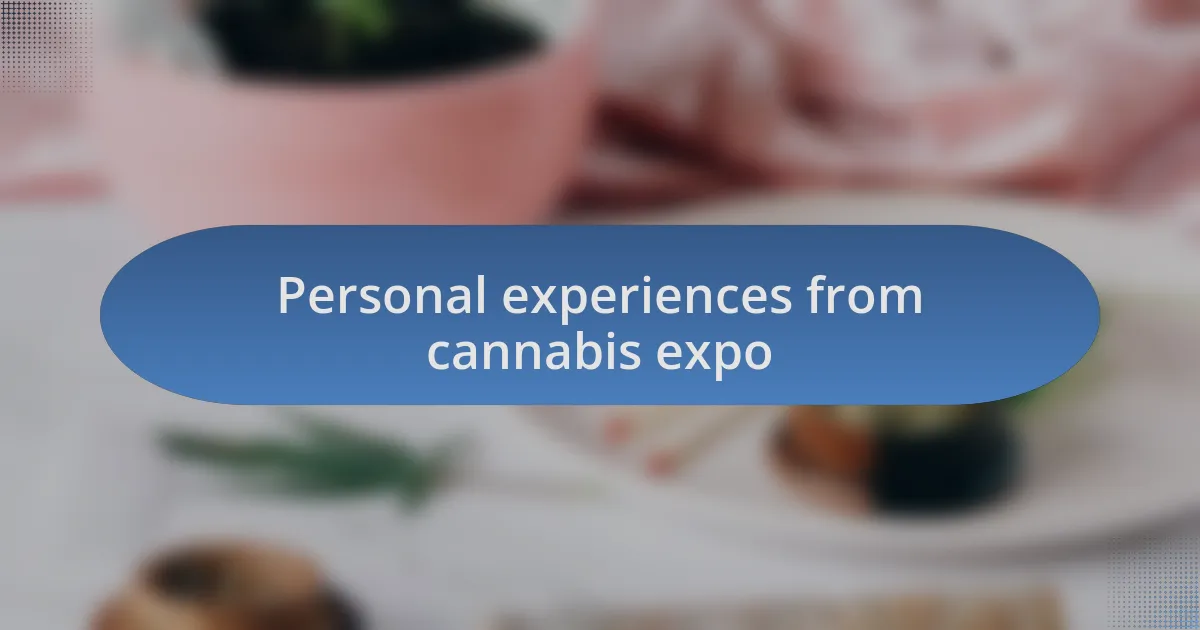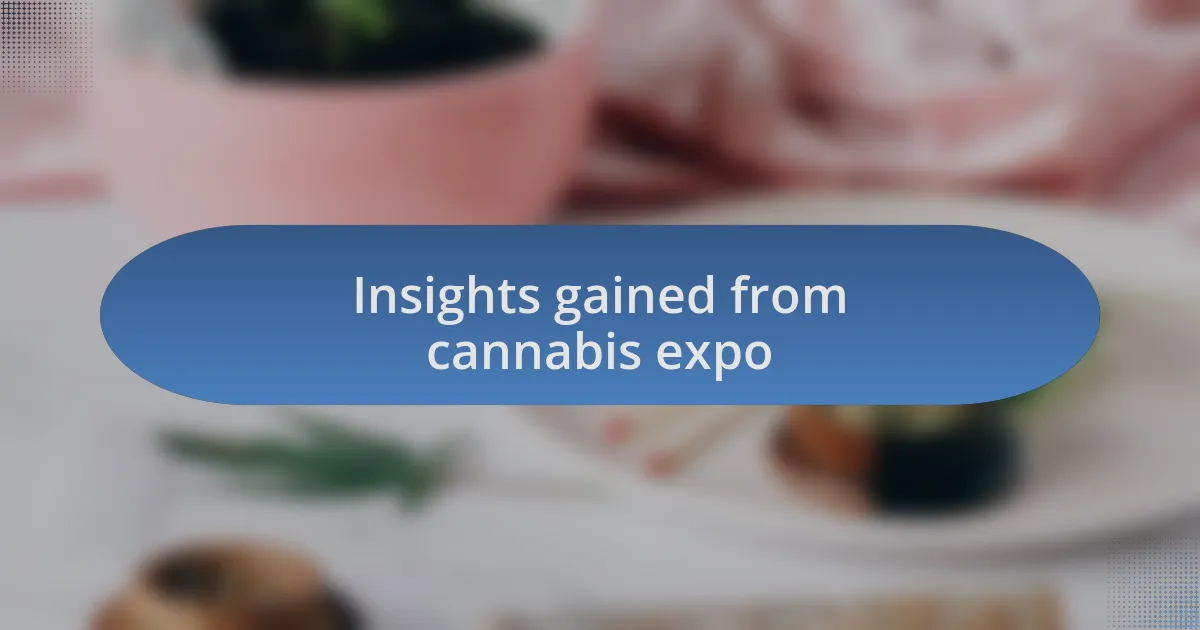Key takeaways:
- Cannabis data analytics is crucial for understanding consumer behavior and tailoring business strategies, fostering innovation in the industry.
- Cannabis expo events facilitate networking and learning, offering valuable insights into compliance, consumer trends, and market forecasts.
- Tools like POS systems and data visualization techniques can significantly enhance operational efficiency and data presentation in cannabis businesses.
- Ethical data collection is essential, influencing interpretation and outcomes, and promoting transparency in market research.

Introduction to cannabis data analytics
Cannabis data analytics is transforming the way we understand and navigate the cannabis industry. I remember attending a small data conference where a speaker emphasized how data is the lifeblood of this evolving market, and it struck me just how critical it is to make informed decisions. By analyzing trends in consumer preferences and product efficacy, businesses can tailor their strategies to meet the demands of their customers.
Think about it: what if we could predict which strains would become popular before they hit the shelves? Drawing from my own experiences, I’ve seen how data-driven insights not only streamline operations but also enhance customer satisfaction. It’s amazing how analytics can provide clarity in a sector that often feels uncharted, helping brands establish a stronger connection with their audience.
As we delve deeper into cannabis data analytics, it’s essential to realize its potential for fostering innovation. The depth of insights available can unravel patterns that were previously invisible, prompting questions like, “How can understanding consumer behavior lead to better product development?” From my perspective, tapping into these analytics equips businesses with the tools needed to thrive in an increasingly competitive landscape.

Overview of cannabis expo events
Cannabis expo events serve as a dynamic platform for professionals and enthusiasts alike to connect, share ideas, and explore the latest innovations. I recall my first experience at a cannabis expo, filled with energy as exhibitors showcased everything from cutting-edge cultivation technologies to unique consumer products. It was thrilling to witness how these gatherings can foster collaboration and spark new ideas in a rapidly evolving industry.
At these expos, attendees have the chance to participate in workshops and panel discussions, delving into crucial topics like compliance, consumer trends, and market forecasts. I once attended a session that tackled the intricacies of cannabis regulations; the insights gained were invaluable and really helped me understand the industry’s landscape. This hands-on knowledge is what makes expos more than just a networking opportunity; they’re a place of genuine learning and growth.
Moreover, the vibrant atmosphere of a cannabis expo often creates memorable experiences that extend beyond the professional realm. I vividly remember chatting with a fellow entrepreneur who shared their journey of launching a cannabis-based product. It made me reflect on my own path and ponder questions like, “What challenges have others faced, and how can we overcome them together?” Those personal interactions not only inspire but also build a sense of community in an industry that thrives on innovation and collaboration.

Tools for cannabis data collection
Tools for cannabis data collection have become increasingly sophisticated, as the industry demands more precise insights. From my experience, platforms like BioTrackTHC and LeafData Systems stand out in their ability to track everything from seed to sale. I often wonder, how can businesses ensure they’re utilizing these tools effectively to drive their operations?
Another significant tool in this realm is point-of-sale (POS) systems, which capture consumer purchasing behavior. I remember one session at an expo where a speaker shared how integrating smart POS systems led to a better understanding of customer preferences, ultimately shaping their product offerings. Isn’t it fascinating how data-driven decisions can transform a cannabis business?
Additionally, mobile apps designed for growers can efficiently gather cultivation data, helping to optimize yields and quality. I once tried a cultivation tracking app during a personal gardening project, and the insights it provided changed how I approached my entire process. Have you considered what actionable data could do for your cultivation methods? Such tools are not just about collecting numbers; they’re a gateway to deeper understanding and smarter practices.

Personal experiences from cannabis expo
While attending the Cannabis Expo, I had a chance encounter with a small-scale grower who shared their journey with me. They spoke passionately about how attending these events opened their eyes to the myriad of analytics available to optimize their production. It got me thinking: what opportunities might I be missing in my own data analysis journey?
During one panel discussion, I felt a palpable buzz in the room as industry experts shared their insights on consumer trends derived from data analytics. Their enthusiasm was contagious, and I left the session feeling inspired. Could these insights be the key to predicting the next big trend in cannabis products?
One of the highlights for me was a workshop that dove into data visualization techniques. As I participated, I realized just how powerful a well-presented data set can be for storytelling. Was I fully leveraging the visuals in my presentations? Understanding this aspect changed my approach significantly, pushing me to communicate data-driven insights more effectively in my work.

Insights gained from cannabis expo
The discussions at the Cannabis Expo revealed some surprising correlations between consumer preferences and product types. I remember sitting in on a session where a data analyst unveiled research on the rise of CBD-infused beverages. It prompted me to wonder: could this signify a long-term shift in consumer behavior away from traditional flower products? I left that discussion contemplating the potential impact on brands and whether I’d need to adapt my strategies based on emerging data.
During my time at the expo, I also encountered a software demo that showcased predictive analytics tools specifically designed for the cannabis industry. Watching how these tools could anticipate market demands based on historical data made me rethink the importance of agility in business planning. Have I been too focused on past trends instead of anticipating what’s next? This experience underscored the value of staying ahead of the curve in a rapidly changing market.
One particular moment stood out: a conversation with a data scientist who emphasized the role of ethical data collection in market research. Their commitment to transparency struck a chord with me, leading me to reflect on how often I consider ethics in my analytics work. It’s fascinating how personal values can influence data interpretation and outcomes, isn’t it? This insight has certainly reshaped my approach, blending both technical analysis and ethical considerations.